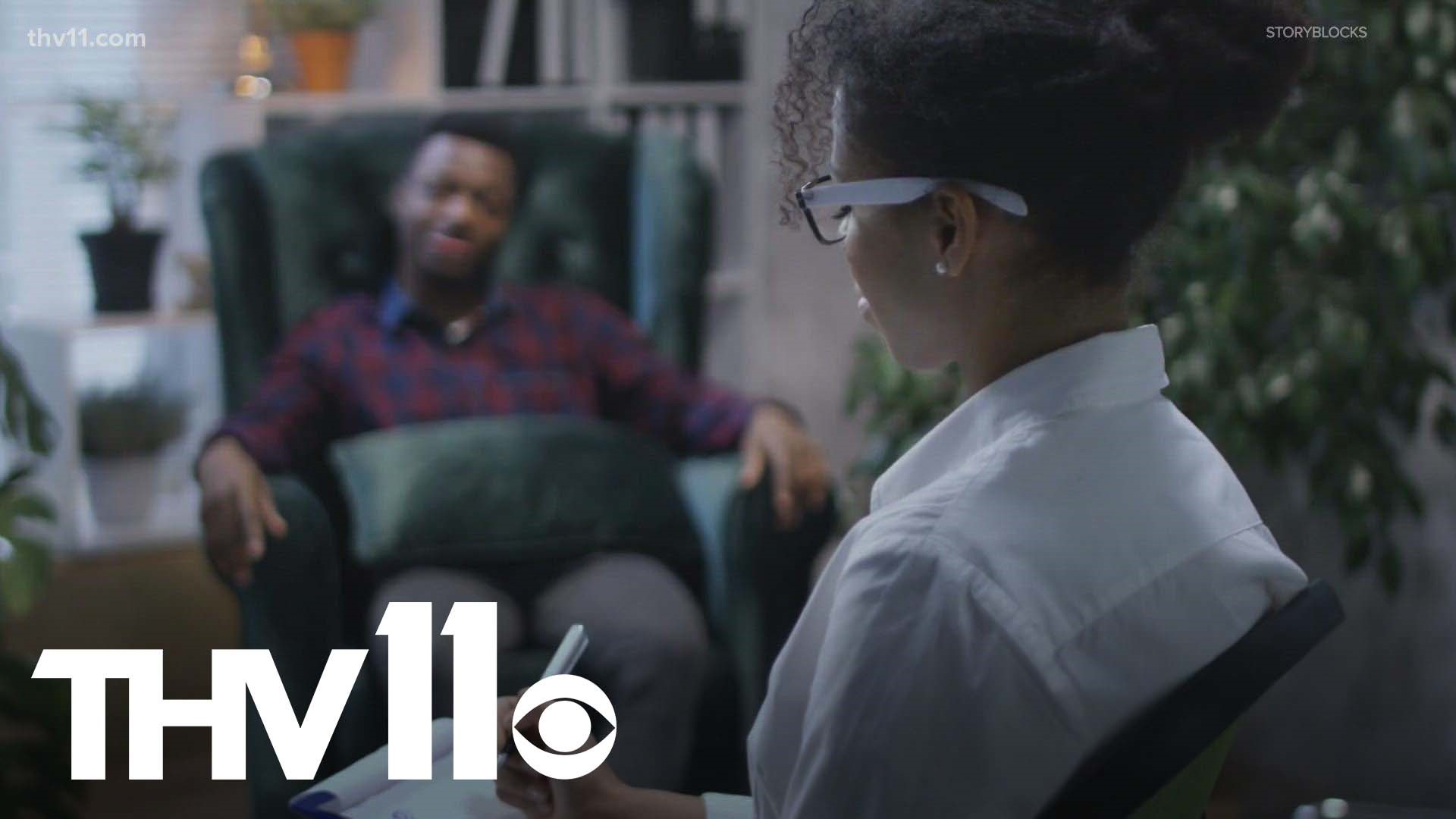LITTLE ROCK, Ark. — The pandemic has given many of us time to get in touch with ourselves and realize that our mental health could use improvement— but what if the mental health assistance you're looking for isn't readily available?
That also raised the question of how likely you are to get the help you need during a crisis.
"The mental health system is broken in Arkansas," said Dr. Buster Lackey, executive director of NAMI Arkansas.
He said that the need for mental health assistance has become dire in the state— but he added that help may not be easy to find for some.
"In some of the rural counties, you have to drive back into one of the bigger cities," Dr. Lackey said.
Many people in rural communities usually have to commute to Little Rock, or another larger city, to get the help they need.
UAMS, the state's largest hospital, created a mental health clinic known as "AR ConnectNow" back in 2020.
Dr. Tony Boaz with UAMS said that the clinic gives people facing behavioral health challenges a chance at getting help.
"Anyone in the state can access care through us with video sessions [and] it's free," Boaz said.
Boaz added that the reality is, even with virtual options available, there are still not enough mental health providers statewide.
"I think 72 of the 75 counties in the state are experiencing a shortage," Boaz said.
The demand for mental health professionals has also created longer wait times— up to an average of about a week.
"Anxiety and depression, there's been such a huge jump in that. I just don't think that professional schools can get people out quick enough to meet the needs," Boaz said.
The Department of Human Services has mental health centers spread across Arkansas' 75 counties, but Dr. Lackey added that even those services are limited.
He's noticed a movement among health professionals to create a one-stop shop in clinics.
"In primary health care offices, we are putting counselors and mental health providers," Dr. Lackey said.
He believes that this could help combat the problem of long wait times.
"You've got a splinter in your finger and you're coming in to get it removed and you're talking to your doctor about depression. Well, you now you have a provider than can either see you or get you in a pretty quickly," Dr. Lackey said.
State organizations have continued to address this dire issue.
Last year, the Blue and You Foundation granted $5.29 million to at least six behavioral health programs in Arkansas, while The Centers for Youth and Families got $5 million.
Most recently, lawmakers made improvements to the state's suicide prevention hotline.
"Our state legislature mandated that the Arkansas Department of Health, create and maintain the Arkansas Lifeline Call," said Jacob Smith with ADH.
One of the problems Smith mentioned was that the National Suicide Prevention hotline previously had no connection to Arkansas.
"It might be going to Oklahoma or Memphis, maybe Ohio and they just don't know the resources here in Arkansas," Smith said.
Since the switch to the three-digit lifeline '988' back in July 2022, when you dial, you'll now be connected to one of three call centers in the state.
On the phone will be a trained ADH employee who evaluates the severity of the call's situation.
"We can see what kind of resources they need [and] if it's a lethality type of call or if it's just a crisis call," Smith said.
Another improvement to the Arkansas Lifeline Center is that ADH will follow up with another call to see how you are doing after the initial call.
Overall, there has been a big shift to enhance the resources of mental health aid in the natural state.
Dr. Lackey said that this is something that must continue.
"To build those stronger mental health systems that provide the care support and services needed to help people," Dr. Lackey said.
Dr. Lackey added that moving forward, he'd like to see 24-hour emergency mental health clinics that are similar to urgent care centers.

